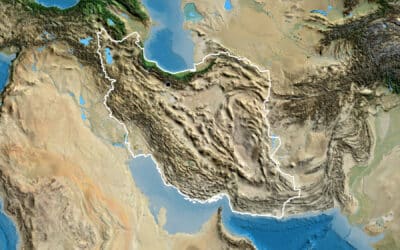The unending Syrian conflict has become the most prolonged and bloodiest since the start of the twenty-first century. It carried off the lives of millions of Syrian, turned the country into a battlefront and caused an immigration crisis in Western states. Moreover, a new fear threatened the world—an emergence of international terrorism, which not only damaged regional security, but also plunged many European capitals into a chaos.
Such a situation could not be ignored by major players on the international scene, including the United States which has been involved in the Syrian crisis since its very beginning in 2011. But Washington is not currently a belligerent able to influence the conflict settlement, because it had previously made a lot of mistakes, which led to deplorable consequences. Where did the White House go wrong, opening the door to Turkey, Russia and Iran?
Regime change has been a long-standing goal of U.S. policy in Syria. Numerous nationwide protests, which began in 2011 under the auspices of American intelligence, laid the foundation for the civil war by igniting sectarianism. A large number of foreign fighters swarmed into the country. It is worth noting that not only the United States, but the United Kingdom and France also jumped on the opportunity to organize, arm and finance rebels to form the Free Syrian Army (FSA) as outlined in the State Department plans to destabilize Syria.
In mentioning the FSA’s role in the conflict we should note its structure. The American government’s claim, that it consisted of moderates, is contradicted by numerous facts. Thus, Professor Joshua Landis, head of the Center for Middle East Studies at the University of Oklahoma, considers that the media largely ignored attacks on policemen and civilians during early demonstrations. “Western press and analysts did not want to recognize that armed elements were becoming active. They preferred to tell a simple story of good people fighting bad people,” he said in one of his interviews. Moreover, a senior figure in British intelligence, Alastair Crooke believes “the FSA is little more than a cover for the al-Qaeda-affiliated terrorists.”
Secondly, the CIA is at least indirectly implicated in the formation of ISIS. In particular, General David Petraeus, then-director of the Central Intelligence Agency, headed operations to send large shipments of Muammar Gaddafi’s weapons from Libya to Syria in 2012, which later were obtained by ISIS. Even as the terrorists began to militarily conquer nearly half the country, the U.S.continued to equip Syrian rebels, using local allies like Jordan and Turkey as intermediaries.
An equally important fact is that the Pentagon and CIA had tons of information not just about the movements of the Jihadists, but also their sources of financing and their ambitions to establish an autonomous state. The U.S. also tolerated its closest allies—Kuwait, Saudi Arabia and other Sunni Gulf states, which transfering money to ISIS. According to analysts, the main goal of such activities is a backlash against American opponents in the region, because either ISIS or al-Qaeda works against Iran, Russia and the Syrian government.
Finally, it is important to note subversive operations by U.S.-backed militant groups in central Syria. Despite the need for a political solution of the Syrian crisis, American military advisors continue to train militants in the al-Tanf garrison. Against the backdrop of the White House’s claims of ISIS’ defeat and increased terrorist attacks in southern and southeastern areas it can be assumed that the Americans perform such activities as part of “proxy war” with Damascus.
These circumstances confirm the fact that without the intervention of the United States and other countries, the protests could have never turned into a civil war with its tragic worldwide aftermath, including the migration crisis and spread of terrorism. In other words the United States’ destructive role in the Syrian conflict became obvious, not allowing it to become a full-fledged party to the peace process in the eyes of the international community.






























